In his second year of undergraduate studies at the University of Cambridge, Michael Wallace realized that statistics are everywhere when he discovered SIGNIFICANCE magazine. He’s since written a number of articles for the magazine as he believes in helping everyone understand statistics and the importance of the subject in our lives.
 He began his post-secondary education thinking that he wanted to study pure mathematics, but his attention turned to statistics because he saw the practical applications. While much of his work is theoretical in the field of biostatistics, working with a lot of equations, Wallace is motivated by real-world questions that we are looking to answer.
He began his post-secondary education thinking that he wanted to study pure mathematics, but his attention turned to statistics because he saw the practical applications. While much of his work is theoretical in the field of biostatistics, working with a lot of equations, Wallace is motivated by real-world questions that we are looking to answer.
While completing his PhD at the London School of Hygiene and Tropical Medicine, Wallace put his theoretical education to work with eye doctors at the University of London. Researchers there were completing a study with patients living with amblyopia, a condition where one eye experiences worse vision than the other. Common treatment includes the use of an eye patch over the good eye to retrain the bad eye through use. In this particular study, the eye patch gathered data.
This practical work taught Wallace about the importance of communication. This included learning how to ask the right questions (even if you think one may sound foolish), being prepared to admit that you don’t know what someone means, and being tactful. Helping the physicians – who are not statisticians – quickly understand complex ideas, such as measurement error, was very important. For example, although an eye doctor assesses your eyesight using an eye chart, measurement error may occur if a patient, unsure of a letter, manages to guess it correctly rather than acknowledge that they cannot see it clearly.
 Aukosh Jagannath holds a PhD in Mathematics from the Courant Institute at New York University from 2016. Since then he has been an NSF mathematical sciences postdoctoral fellow at the University of Toronto and Harvard University as well as a Benjamin Pierce Fellow at Harvard University. His research interests are in probability and analysis and their applications to statistical physics, combinatorial optimization, the mathematics of data science, and high-dimensional statistics. Aukosh will help develop a stronger theoretical foundation for data science and expand our links with other departments and faculties at Waterloo.
Aukosh Jagannath holds a PhD in Mathematics from the Courant Institute at New York University from 2016. Since then he has been an NSF mathematical sciences postdoctoral fellow at the University of Toronto and Harvard University as well as a Benjamin Pierce Fellow at Harvard University. His research interests are in probability and analysis and their applications to statistical physics, combinatorial optimization, the mathematics of data science, and high-dimensional statistics. Aukosh will help develop a stronger theoretical foundation for data science and expand our links with other departments and faculties at Waterloo.
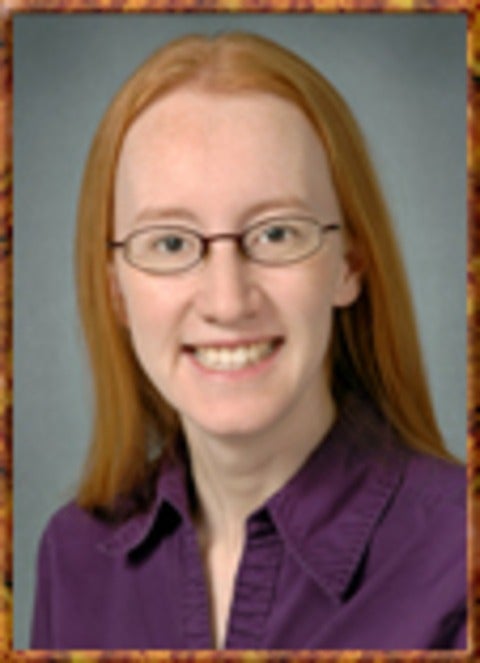
 The Department of Statistics and Actuarial Science is extremely proud to announce that
The Department of Statistics and Actuarial Science is extremely proud to announce that 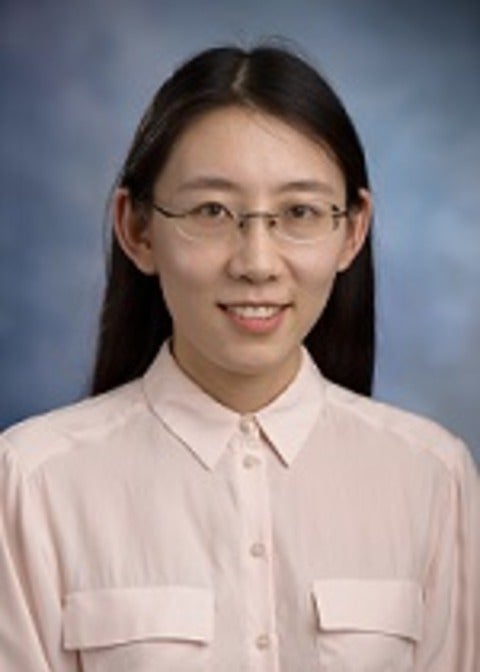
 Fangda Liu holds a PhD in Actuarial Science from the University of Waterloo from 2015. She was then an assistant professor at the Central University of Finance and Economics for 3 years, and joins us from an assistant professor position in the College of Business at Georgia State University. Her research interests include reinsurance/insurance, risk measures, risk sharing and market equilibria. Her work provides a good balance of theory and applications and she will strengthen the actuarial science group within our department.
Fangda Liu holds a PhD in Actuarial Science from the University of Waterloo from 2015. She was then an assistant professor at the Central University of Finance and Economics for 3 years, and joins us from an assistant professor position in the College of Business at Georgia State University. Her research interests include reinsurance/insurance, risk measures, risk sharing and market equilibria. Her work provides a good balance of theory and applications and she will strengthen the actuarial science group within our department.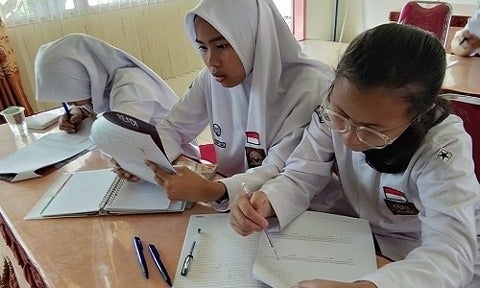
 The University of Waterloo and the
The University of Waterloo and the 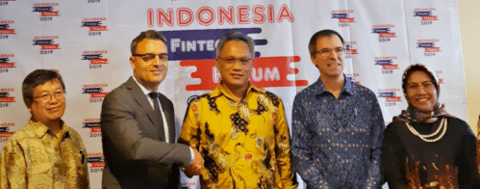

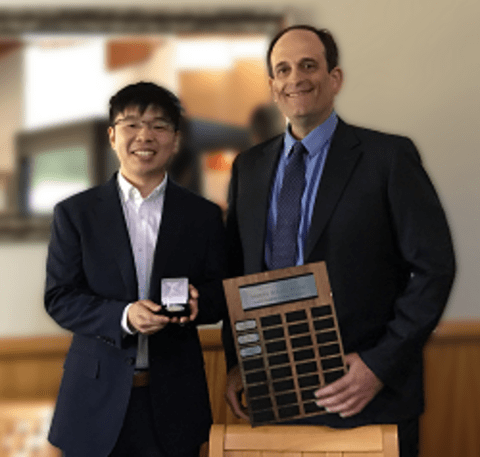
 The Department of Statistics and Actuarial Science is pleased to announce Chao Qi (George) Li as the winner of the Samuel Eckler Medal in Actuarial Science.
The Department of Statistics and Actuarial Science is pleased to announce Chao Qi (George) Li as the winner of the Samuel Eckler Medal in Actuarial Science.

 The Department of Statistics and Actuarial Science is proud to announce the winners of the 2019 Teaching Award goes to
The Department of Statistics and Actuarial Science is proud to announce the winners of the 2019 Teaching Award goes to 

 The Master’s of Actuarial Science program (MActSc) celebrated its 10 year anniversary with a banquet dinner on Friday May 31, 2019, welcoming back MActSc alumni, faculty, and special guests.
The Master’s of Actuarial Science program (MActSc) celebrated its 10 year anniversary with a banquet dinner on Friday May 31, 2019, welcoming back MActSc alumni, faculty, and special guests.  This endowed award was created in recognition of
This endowed award was created in recognition of 
 He began his post-secondary education thinking that he wanted to study pure mathematics, but his attention turned to statistics because he saw the practical applications. While much of his work is theoretical in the field of biostatistics, working with a lot of equations, Wallace is motivated by real-world questions that we are looking to answer.
He began his post-secondary education thinking that he wanted to study pure mathematics, but his attention turned to statistics because he saw the practical applications. While much of his work is theoretical in the field of biostatistics, working with a lot of equations, Wallace is motivated by real-world questions that we are looking to answer.
